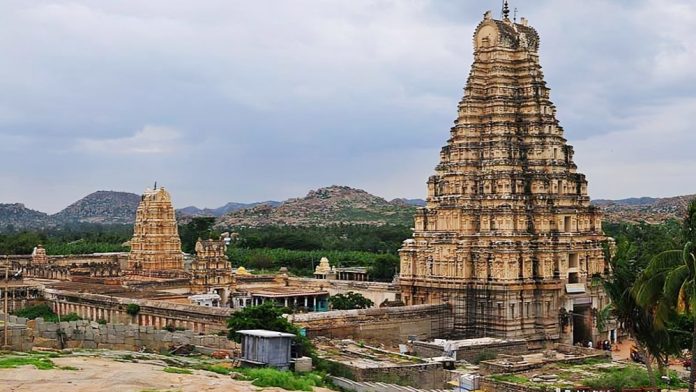On January 21, Wednesday, the Karnataka state assembly passed amendments to the Hindu Religious Endowments Act. The amendments, aimed at reshaping the management and allocation of temple funds, have polarized opinions within the state, with supporters touting them as measures of inclusivity while detractors decry them as encroachments on religious autonomy. BJP says this is like Jizya Tax against Hindus by Congress. Congress said it will be used for dharmic parishad purposes. As of now more than 200 temples earn income of over 25 lakhs in Karnataka.
Explaining the Amendments Under the revised law, temples in Karnataka with an annual income exceeding one crore rupees are now mandated to allocate 10 per cent of their earnings to a newly established ‘Common Pool Fund' (CPF). Similarly, temples earning between Rs. 10 lakh and one crore annually are required to contribute 5 per cent of their income to the same fund. This restructuring aims to ensure a more equitable distribution of temple resources and aid various charitable endeavors. However, Section 19(A) of the amended law has stirred controversy, permitting the utilization of the Common Pool Fund for any “poor and needy organization.” Critics argue that this broad language leaves room for potential misuse of temple funds, diverting them from their intended religious and community-oriented purposes. Furthermore, Section 25 of the amended law allows for the appointment of members from both Hindu and other religions to the Management Committee of composite institutions, raising concerns about the dilution of traditional temple governance structures. A Clash of Ideologies The passage of the amendments has sparked a heated debate between political parties and citizens alike. BJP leaders, including Vijayendra Yediyurappa and Amit Malviya, have vociferously criticized the amendments, accusing the Congress government of targeting Hindu temples for financial gain. They argue that the amendments amount to a form of taxation on Hindu devotees, with the funds potentially being diverted to non-Hindu causes.
“Under this, the government will collect 10% of the income from temples earning over ₹1 crore, this is nothing but poverty. The offering dedicated by the devotees for the knowledge of God and the development of the temple should be allocated for the renovation of the temple and for the convenience of the devotees. If it is allocated for another purpose, it is on the divine beliefs of the people. There will be violence and fraud,” Yediyurappa said, questioning why the INC government was not targeting other religions too.
BJP IT cell chief Amit Malviya made a scathing attack on Siddharamiaha Government. He calls upon Hindu community to wake up against this injustice. Malviya posted on X, “If this doesn't wake up the Hindus to the reality that Congress is the new Muslim League, nothing else will”-
On the other hand, Ramalinga Reddy, a Minister in Karnataka, has defended the amendments, asserting that they are aimed at promoting social justice and accountability. Reddy contends that the Congress government is committed to safeguarding the interests of all religious communities, including Hindus. “Sri Vijayendra Yediyurappa, it is clear that BJP always pursues political gains by claiming that Congress is anti-Hindu. However, we, the Congress, consider ourselves the true proponents of Hinduism because, over the years, Congress governments have consistently safeguarded temples and Hindu interests,” he said. “Did your BJP government neglect its responsibilities between 2008 and 2013, as well as (sic) from 2019 to 2023? It seems they turned a blind eye to the revenues of Hindu religious institutions and charitable endowments, despite the existence of acts or bills in place since 2001,” he added
Public Outcry and Social Media Backlash The controversy surrounding the amendments has spilled over onto social media platforms, with citizens expressing their outrage and disillusionment. Many X users have denounced the amendments as anti-Hindu and have called for a boycott of temple donations. Influential voices such as Renuka Jain and Dr. Gulati have urged for intervention from the Supreme Court, highlighting concerns about the potential misuse of temple funds.
Rnuka jain writes – “Supreme Court should interfere. Mandir me non hindus kyu chahiye?”
Dr. Gulati, A doctor from Noida expressing anger posted, “This is stealing from the deity. I am shocked that the BJP doesn't understand it. Once it is offered to the deity, it is not meant to be under government control. The government should make stakeholders from all sections so the money of HIndus goes back to fulfil temple maintenance and other Hindu causes.”
An influencer account on X, Usha (@mauna_adiga) calls it a loot by karnataka government and affirms not to donate money in temple hundi.
“This is Anti-Hindu and are provisions to loot temple money and utilise to other Religious Institutions. This is the reason why we shouldn't donate money to temple hundi!”
Another X user suggests that Hindus should stop offering money in the Hundi of temples, rather money should be given to priests as ‘dakshina'.
“Don't put money in Hundi. I always give kanike to Poojari and seek blessings. I don't want a Hindu hating Govt to use money that comes from Hindus to appease other religion”

Ram Kumar Kaushik is a seasoned journalist with over 25 years of experience across mediums. The architect of this news website, he is also a consultant with several media groups. He was formerly the group managing editor of ITV Network (NewsX, India News and The Sunday Guardian) and its digital products.



